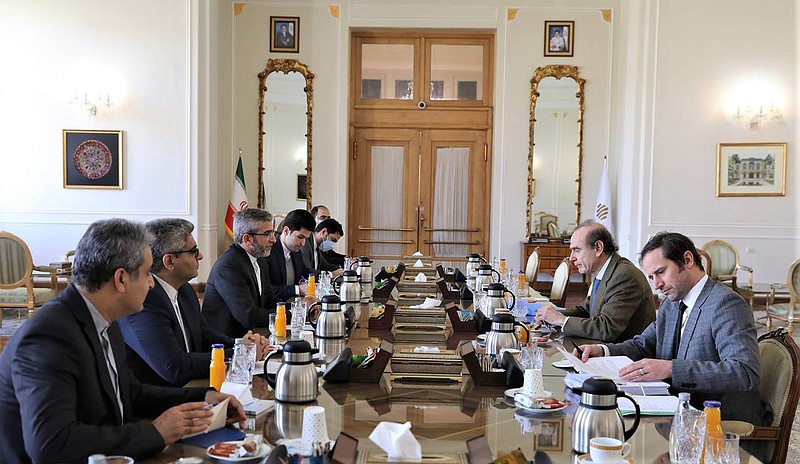TEHRAN, Iran -- A leading European Union diplomat held talks in Tehran on Sunday, Iran's state-run media reported, amid hopes that an agreement to restore Iran's tattered nuclear deal with world powers could be completed.
The meetings between the EU's envoy, Enrique Mora, and top Iranian officials come at a sensitive moment for talks to revive the deal, as the hopes for a resolution to some of the issues in the negotiations have emerged.
The report on the talks in Tehran says only that the diplomats discussed the latest on the nuclear agreement, with Iran's top nuclear negotiator Ali Bagheri Kani repeating that Iran believed a deal was within reach if America was "realistic" in its demands. After meeting Mora, Foreign Minister Hossein Amirabdollahian also cast blame on the U.S. for the delay in reaching an agreement.
Former President Donald Trump abandoned the nuclear deal in 2018 and reimposed sanctions. Iran gradually breached the agreement with an expansion of its nuclear work.
Nuclear talks broke off earlier this month as last-minute wrangles in Vienna coincided with Russia's invasion of Ukraine and financial sanctions imposed by the West on Moscow.
But officials have since made encouraging statements. Russia appeared to back down from its earlier demand that its trade with Iran be exempted from Western sanctions.
And for the first time, Iran's top diplomat on Saturday publicly signaled flexibility over Tehran's demand that Washington stop designating the country's Islamic Revolutionary Guard, its paramilitary force, as a foreign terrorist organization.
Remarks Sunday by the U.S. special envoy for Iran, Robert Malley, underscored the U.S. limitations that have frustrated allies. He declined to discuss details of the nuclear negotiations, but reiterated that America had failed to secure a broader deal with Iran that would restrict its ballistic-missile program and curb its regional military policies.
"It would have been better, but [the nuclear deal] was not intended to, it wasn't able to address the other issues," Malley said.
However, Malley was quick to stress that no matter what happens to the Guard's terrorism designation, separate sanctions over its ballistic-missile development and alleged human-rights violations would remain.
Information for this article was contributed by Isabel DeBre of The Associated Press.

